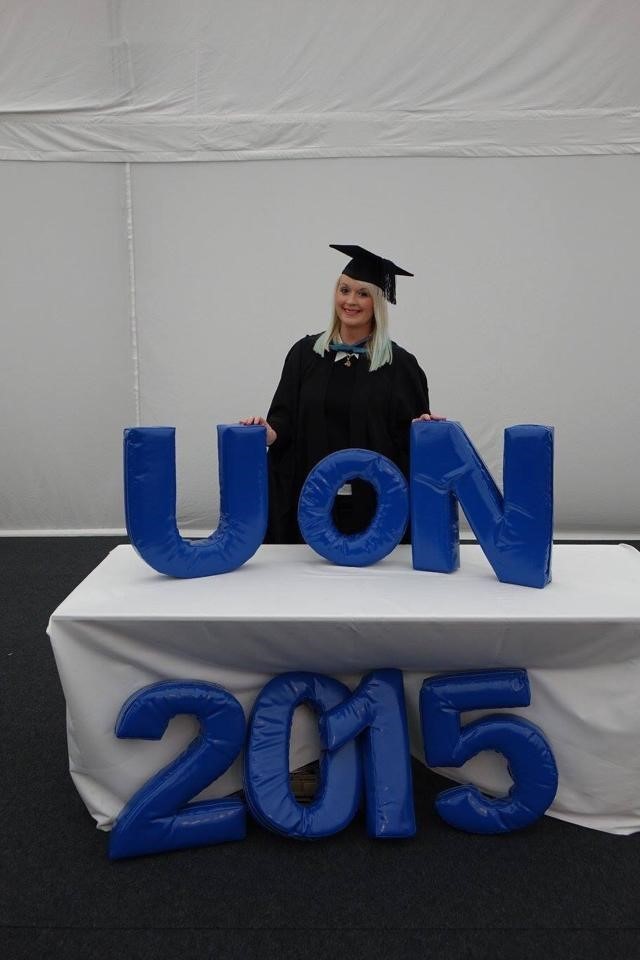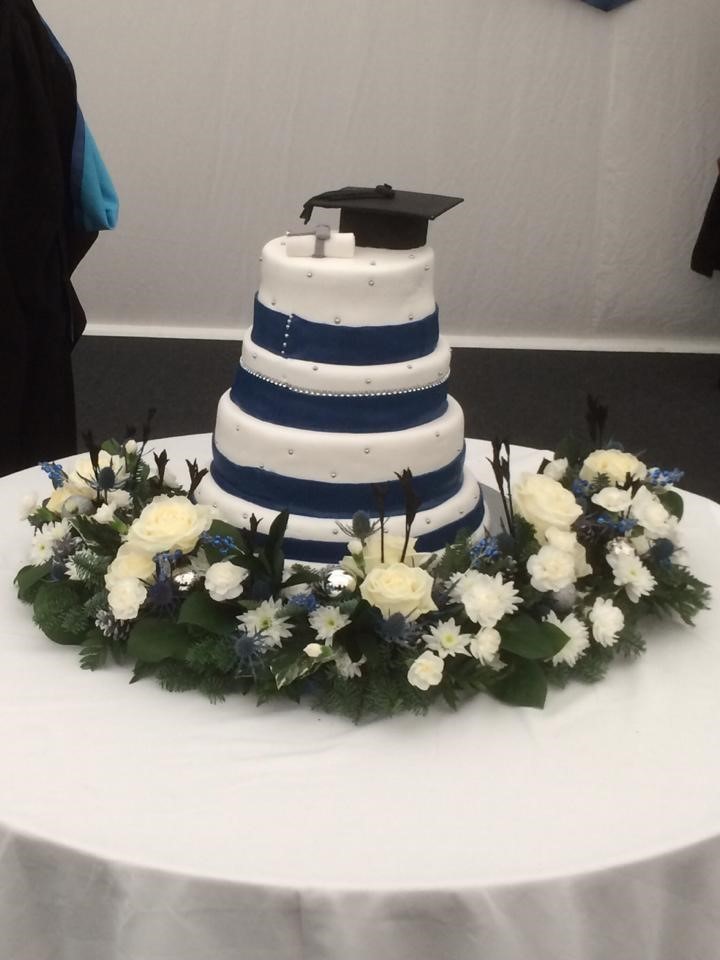April 16, 2021, by School of Medicine
30 at 30: Student Nurses in the 21st century
 The role of the student nurse has somewhat changed over the last 30 years. My student nurse journey began in March 2006 at the University of Nottingham’s School of Nursing Mansfield centre. We were the second cohort to be given the opportunity to study at degree level. While UK universities began offering nursing degrees during the 1960’s, in 2005-6, 4% of nurses were educated to degree level alongside the roll out of the diploma in nursing programme. Back in the 1970’s, there was a prejudice that nurses should not be educated. Now, the Nursing and Midwifery Council (NMC) require nursing students to obtain a BSc (Hons) degree upon registration. In addition to this and to improve patient outcomes, boost quality and lower costs, healthcare leaders and institutions have increased expectations for evidence-based practice. In 2020, The Institute of Medicine (IOM) aimed to ensure that 90% of clinical decisions were to be evidence-based. As the largest group of healthcare providers, nurses have a significant role in meeting this goal. Here at the UoN, nursing students are offered the BSc (Hons) degree which enables students to adequately gain the knowledge needed to care for people in this time of highly technological health care, complex drug and treatment regimens, emerging diseases, complex monitoring, convoluted management structures and arduous infection control.
The role of the student nurse has somewhat changed over the last 30 years. My student nurse journey began in March 2006 at the University of Nottingham’s School of Nursing Mansfield centre. We were the second cohort to be given the opportunity to study at degree level. While UK universities began offering nursing degrees during the 1960’s, in 2005-6, 4% of nurses were educated to degree level alongside the roll out of the diploma in nursing programme. Back in the 1970’s, there was a prejudice that nurses should not be educated. Now, the Nursing and Midwifery Council (NMC) require nursing students to obtain a BSc (Hons) degree upon registration. In addition to this and to improve patient outcomes, boost quality and lower costs, healthcare leaders and institutions have increased expectations for evidence-based practice. In 2020, The Institute of Medicine (IOM) aimed to ensure that 90% of clinical decisions were to be evidence-based. As the largest group of healthcare providers, nurses have a significant role in meeting this goal. Here at the UoN, nursing students are offered the BSc (Hons) degree which enables students to adequately gain the knowledge needed to care for people in this time of highly technological health care, complex drug and treatment regimens, emerging diseases, complex monitoring, convoluted management structures and arduous infection control.
So, what entices people to apply for a pre-registration nursing programme, especially in today’s climate of nursing? My decision to venture into a career of nursing stemmed from my own personal experience as a child. Before technology devices were a thing, and outdoor play was the norm, I accidentally fell off my bike and broke my knee which required hospital treatment. What was a traumatic experience at the time was soon to be transformed into a positive experience because of how the nurse caring for me made me feel during my stay in hospital. I remember her comforting me and acknowledging my every need. She spent time with me and even let me choose the colour of my plaster cast – it was bright pink so this, of course, made 7-year-old me very happy.
She obviously made an impression at such a young age as I still remember this memory very clearly.
Paediatric nursing is a very special vocation because it provides an opportunity to play a key role in a child’s life when that child needs you most and this previous experience of mine definitely played a part in generating a passion to pursue a career in child nursing.
Nursing in general, however, does come with its challenges. 2020 was the international year of the nurse and midwife. In the same year, the UK was hit by the Covid-19 pandemic, bringing new and unforeseen challenges to the health service which nurses, midwives and student nurses continue to challenge magnificently on a daily basis. During the last year, more than 30,000 student nurses have stepped forward and volunteered to work for the NHS during the coronavirus pandemic. Currently, many of these students are now on their final placements and preparing to graduate this year. Students from across England, Scotland, Wales and Northern Ireland are one of the first generations to have trained in an environment like this. So, what is it that makes people want to become nurse, especially during today’s pandemic? When asked, nurses expressed how their professional identity is very important to them. There is an intrinsic reward in being a nurse and for some it is linked to the notion of nursing as a vocation or a calling, with many students describing this as a key incentive for their choice of career. Having interviewed candidates over the past few months, many of the responses portrayed a sense that the pandemic and response by the public has positively reinforced their career choice.
For any students reading this, being a student nurse at the UoN in 2006 changed my life in many ways. During the theoretical content, I was taught by some fantastic nursing lecturers; Alan Pringle, Dr Fern Todhunter, Dr Dawn Ritchie, Gill Langmack, Elisabeth O’ Brian, Alex Smith and Lesley Strouther, all who I now have the pleasure of working with in my current role here at the University of Nottingham. In terms of practice placements, I had great experiences on the paediatric wards in and out of the network of Nottingham and so ensured this experience was imitated for students whilst in my clinical development nurse post, working as their assessor on the neonatal intensive care unit at NUH. I thoroughly enjoyed my neonatal placements as a student nurse at both King’s Mill hospital and NUH and decided to pursue this field of nursing upon qualifying. Many students who enjoy their practice placements and who are made to feel part of the team, often apply to these areas upon qualifying, reflecting their prior positive experience within varied intensive care environments. Postgraduate education is another fantastic opportunity here at UoN. The Masters (MSc) in health and social care, taught by John Mcluskey which I undertook part time whilst working full time on the ward, gave me the confidence to apply for my current role here at the university, not really because of the course content but rather having the opportunity to be in an academic environment where curiosity, questioning and debate was encouraged and welcomed with open arms.
 So why am I telling you all this in the 30 years of Nursing celebrations?
So why am I telling you all this in the 30 years of Nursing celebrations?
Well, nursing isn’t simply a job, it becomes part of who you are. It is a career in which you will gain huge satisfaction, knowing you have made a difference to patients and families’ lives. It offers a high degree of flexibility and a varied career with excellent employment prospects.
I emphasise this because my journey has taken me from being a student nurse to now teaching both pre-registration and postgraduate nursing students. In 2020, the subject of Nursing at the University of Nottingham was ranked 28th in the world and 5th in the UK. This was a huge achievement for the university and one that the university is very proud of.
I joined the School of Health Sciences as a Child Teaching Associate in 2020. As part of this role, I will continue to support students and deliver teaching on the pre-and post-registration nursing programmes, utilising my specialist clinical expertise to help deliver the Future Nursing Curriculum.
By Stephanie Manning, Child Teaching Associate in the School of Health Sciences
No comments yet, fill out a comment to be the first

Leave a Reply